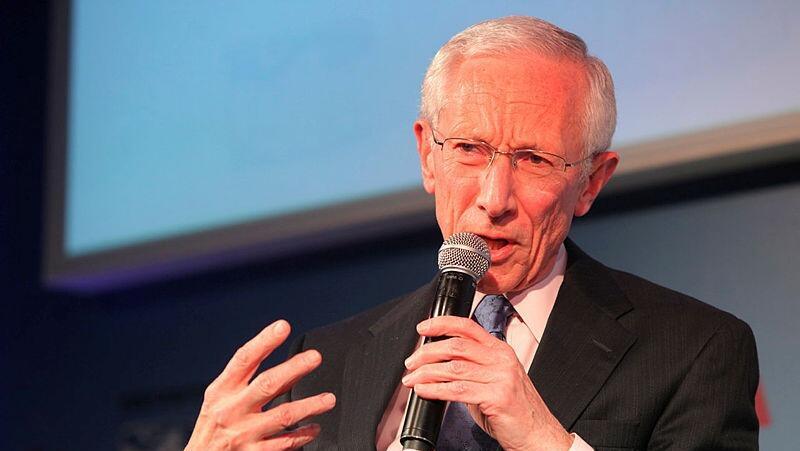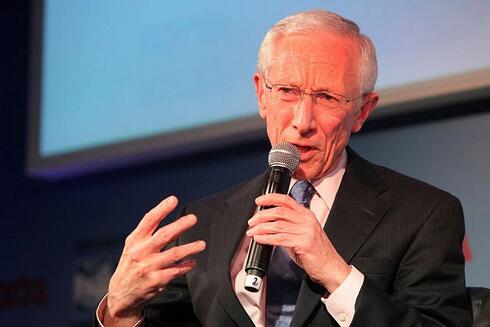
Stanley Fischer, former Bank of Israel Governor and US Fed Vice Chair, dies at 81
Influential central banker remembered for his crisis leadership and institutional reforms.
Stanley Fischer, a world-renowned Israeli-American economist and former Vice Chairman of the U.S. Federal Reserve, has passed away at the age of 81. Fischer held the most senior role ever occupied by an Israeli in the global financial system and was widely regarded as one of the most influential central bankers of the modern era.
The eighth Governor of the Bank of Israel, Fischer was born on October 15, 1943, in Mazabuka, Zambia (then Northern Rhodesia), to a family of Jewish immigrants from Latvia. At the age of 13, his family moved to Southern Rhodesia (now Zimbabwe), where he became active in the Zionist youth movement "Habonim" and met Rhoda, who would become his wife until her passing in 2020. His first visit to Israel was in 1960.
Fischer began his academic career at the London School of Economics, earning both his undergraduate and master’s degrees between 1962 and 1966. He completed his Ph.D. in economics at the Massachusetts Institute of Technology (MIT) in 1969. After a period teaching at the University of Chicago, he joined the MIT faculty in 1973, eventually becoming a full professor and head of the economics department. Among his doctoral students were future central bank leaders Ben Bernanke (Federal Reserve) and Mario Draghi (European Central Bank).
A pioneer of New Keynesian economics, Fischer published a seminal 1977 paper showing how monetary policy can impact real economic activity. His global career began in 1988 as Chief Economist of the World Bank, followed by a term as Deputy Managing Director of the International Monetary Fund (1994–2001) and later as Vice Chairman of Citigroup (2002–2005).
In 2005, then-Finance Minister Benjamin Netanyahu offered Fischer the position of Governor of the Bank of Israel during the World Economic Forum in Davos. Fischer accepted, surprising many, and served until June 2013. His tenure brought about institutional transformation, including the 2010 Bank of Israel Law that created the Monetary Committee and curtailed the governor's sole authority over monetary policy.
One of Fischer’s most lasting achievements was the “shekelization” of the Israeli economy - encouraging the use of the shekel for major household transactions such as home and car purchases. The shift signaled growing confidence in the central bank’s ability to control inflation.
Fischer’s leadership during the 2008 global financial crisis was marked by swift interest rate cuts and liquidity injections via government bond purchases. When the shekel appreciated sharply to 3.2 per dollar, threatening exporters, Fischer intervened in currency markets, buying dollars to stabilize the exchange rate. Thanks to these measures, Israel weathered the crisis without a financial collapse.
In 2014, Fischer was appointed Vice Chairman of the U.S. Federal Reserve, a role he held until 2017. After his retirement, he continued to advise international financial institutions and served as a board member at Israel’s Bank Hapoalim. He left behind a legacy of institutional reform and economic stability that helped position the Bank of Israel among the world's most respected central banks.
Related articles:
The Bank of Israel issued a statement: “The Governor of the Bank of Israel, the Monetary Committee and the Administrative Council, management, and all of the Bank’s employees and retirees mourn the passing of Professor Stanley Fischer, former Governor of the Bank of Israel. Prof. Fischer made a crucial contribution to the Israeli economy - both during his tenure at the International Monetary Fund, where he played a significant role in formulating the 1985 stabilization plan, and as Governor of the Bank of Israel, when he steered the country through the 2008 global financial crisis.”
Current Governor Prof. Amir Yaron added: “Generations of Bank of Israel staff and I bow our heads today in memory of Prof. Fischer, whose contributions to the Bank and to the Israeli economy were transformative. We share the family’s deep sorrow. May his memory be a blessing.”
